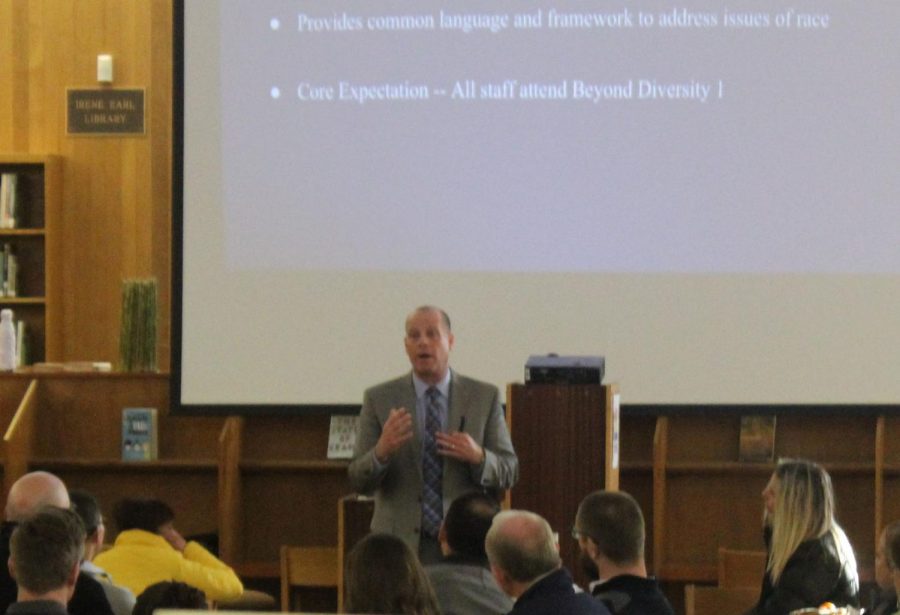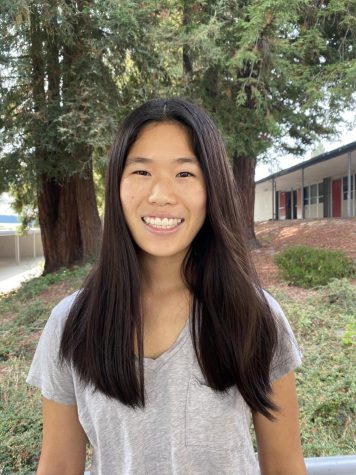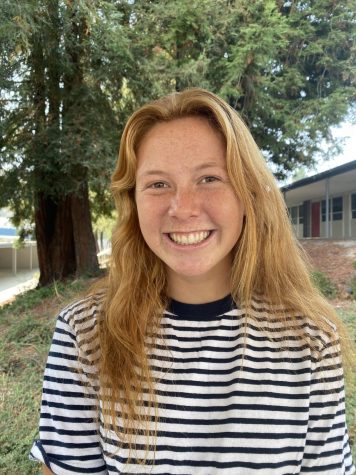Admin Responds to Threats of Racism
February 6, 2019
Despite recent district efforts to increase empathy and awareness across campus, a “threatening and racist note” was discovered in sophomore Matai Bell’s binder on February 4.
Matai Bell left his binder in teacher Ryan Boyd’s Introduction to Psychology class on January 25, where Boyd found a note inside. According to Bell, the note read, “Listen here goon, I got bad news for you. You’re black.”
“I was very angry,” said Boyd. “I was going to talk to all of my classes that very day, and then I thought about it and I went to his counselor and [principal John] Walker 1st so that we could strategize how to deal with this.”
“Stuff like that won’t affect me, because I know where I am and who I am, but at the same time, I [knew I should] probably say something about it because someone like me can take this kind of stuff, but other African Americans shouldn’t have to take this kind of stuff,” said Matai Bell.
Though the administration has not identified the culprit, and counselor Patrick Turner declined to comment on the investigation, Walker visited all of Boyd’s classes on February 4 to discuss the incident and encourage students to speak up if they had any information.
While Walker made his rounds, he shared a response to the note that Matai Bell authored and asked to be shown to each class. In it, Matai Bell acknowledged that whoever wrote the note most likely “wanted to impress their friends, wanted to be funny,” but that it was “just ignorant.”
In addition, a staff meeting with a student diversity panel was held on February 6 to talk about the issue and how to promote student equity at Campolindo.
The diversity panel students were prompted by questions from social studies teacher Dino Petrocco. According to Turner, 1 of the questions was, ” ‘What does it feel like to be a student of color in a classroom in which an incident may have happened where you felt like you could have been more supported by a teacher if the teacher had heard that information?’ “
Other issues discussed included “race in the classroom and…what it feels like to be in a classroom in which you might be the 1 minority in that class,” said Turner.
Boyd’s classes also participated in activities meant to open discussion about racism and bullying during the week of February 4. He and Walker came up with a series of questions intended to inspire students to reflect on the prevalence of racism on campus and what they think should be done about it.
Sophomore Intro to Psych student Ellie Olson, who participated in the in-class discussions, said, “I think it really was a mature way to go about it. Everyone was mature about it and they took it and handled it really well. I think it’s been a good way to educate people about racism.”
Boyd hopes that the students are “more conscientious about the effect of some of the comments they make or things they share on social media,” and plans on continuing to teach his classes about the history of racism in American for the next few days.
Black Student Union president sophomore Amia Bonilla believes that the incident tarnishes Campolindo’s image. “[It shows that] the students here feel like it’s okay to do that, and it’s really not. It’s like, there’s no excuse for that.”
Sophomore Terryal Bell, Matai’s sister, argued instead that putting a blanket statement on Campolindo is unfair. “I’m on the individual thing, like blame the individual, not the whole. Campo as a whole, it’s a good school,” she said. “Not everyone is like that. It’s just 1 kid that decided to target another kid based on their skin.”
Bonilla noted that this incident is “a big deal” but “there are worse things” that the teachers and administration aren’t aware of because students aren’t comfortable telling them. “I’ve literally gotten comments like people saying they’re going to kill all black people, [but] I’m not going to go to Walker, because then he’s probably going to have an assembly about it and use my name, which then would be a big thing,” said Bonilla.
Turner also recognized that many students don’t report instances of racism to teachers. “Even if the student sees it, they just feel so overwhelmed that they don’t want to speak on this issue because [they think] no one is going to listen to them,” he said. “This student felt more validated that the teacher got the information and presented it to us without him knowing that this had even been received.”
February is Black History Month, a month dedicated to commemorating African American history. “We shouldn’t be making racist remarks. We should be focusing on learning more about African American history,” said Matai Bell.
For Turner, Campolindo’s reputation as a great place to learn hides the fact that some things “fall under the cracks, and thankfully, there was a teacher who stood up to help to mend this situation,” he said.
“No one deserves this type of behavior, really,” concluded Matai Bell. “We just come here to learn. We don’t come here to take any criticism. We never asked to be this skin color.”



Stan Oberg • Feb 8, 2019 at 5:12 pm
I’m a retired teacher from the Acalanes district. The action described here is beyond appalling. It does appear in this article that victims of such behavior are reluctant to bring this to the attention of teachers or administrators. I am not in the students’ position, so I have only a vague idea why it might be uncomfortable for the students. But I wonder how it is possible for teachers/administrators/staff to address such issues if they are unaware of them. I call on ALL students to report harassment of any kind.